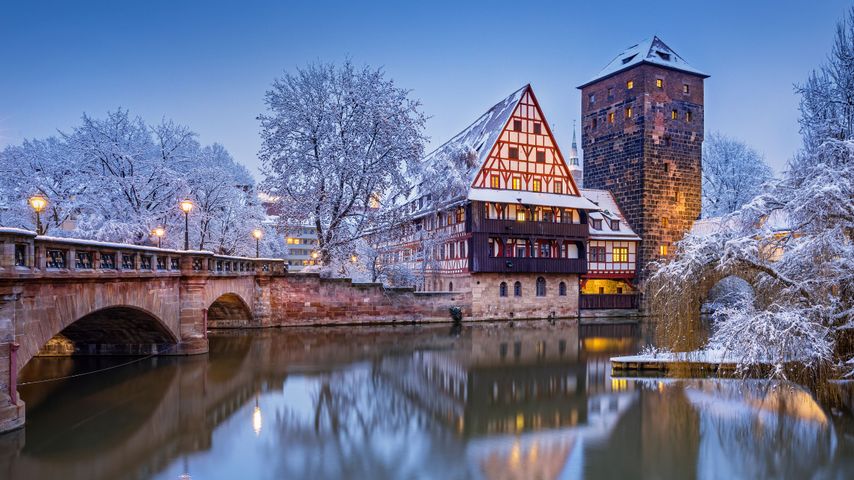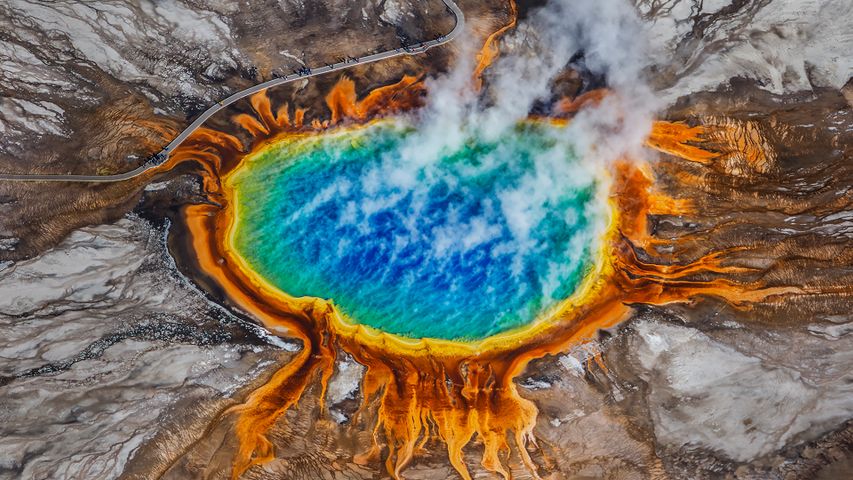Nusa Dua coast with breakwater, Bali, Indonesia
© Dkart/Getty Image
The most wonderful day of the year.
Er, comma—at least it seems like that's what we're seeing. And just like a comma breaks up a sentence, this structure called a breakwater interrupts the Pacific Ocean, punctuating waves with a crash before they can disturb this Bali beach. Whether its resemblance to a comma (or is that an apostrophe?) was intentional or not, it's a fine visual for today's syntactical celebration. That's correct: It's Grammar Day! (Note to hardline grammarians: We know punctuation—like a comma—isn't exactly grammar, but we're loosening the linguistical reins a bit in the generous spirit of Grammar Day. So put that red pen down, smarty-pants.)
If you're not inclined to decline nouns or dying to diagram a sentence, don't quit reading just yet. You might just think of grammar as the dos and don'ts taught in English textbooks—but a mere stuffy set of rules it ain't. Grammar is the ingredients of a language. Whenever we speak or even think, whether with prim-and-proper diction or in the most teacher-defying slang, our brains are using grammatical rules to translate firing neurons into words and phrases. Just how this happens is still a hot debate for linguists: Are these rules based on hardwired neural pathways or are they learned from a young age?
Well, however the brain works, we hope you brought yours today. Our quiz covers those wonderful, nitpicky grammar rules from school you doubtless remember so well. Sharpen your pencils!
Related Images
Bing Today Images




 A delta in the Venetian Lagoon, Italy
A delta in the Venetian Lagoon, Italy
 Grand Prismatic Spring, Yellowstone National Park, Wyoming, United States
Grand Prismatic Spring, Yellowstone National Park, Wyoming, United States
 Desert bighorn sheep in Valley of Fire State Park, Nevada, United States
Desert bighorn sheep in Valley of Fire State Park, Nevada, United States
 Eucalyptus trees, Megalong Valley, Blue Mountains National Park, NSW, Australia
Eucalyptus trees, Megalong Valley, Blue Mountains National Park, NSW, Australia
 Sandstone hoodoos, Bryce Canyon National Park, Utah, United States
Sandstone hoodoos, Bryce Canyon National Park, Utah, United States
 Great Blue Hole, Belize
Great Blue Hole, Belize
 Ribblehead Viaduct and Ingleborough mountain, North Yorkshire, England, United Kingdom
Ribblehead Viaduct and Ingleborough mountain, North Yorkshire, England, United Kingdom
 Zoroaster Temple, Grand Canyon National Park, Arizona, USA
Zoroaster Temple, Grand Canyon National Park, Arizona, USA


